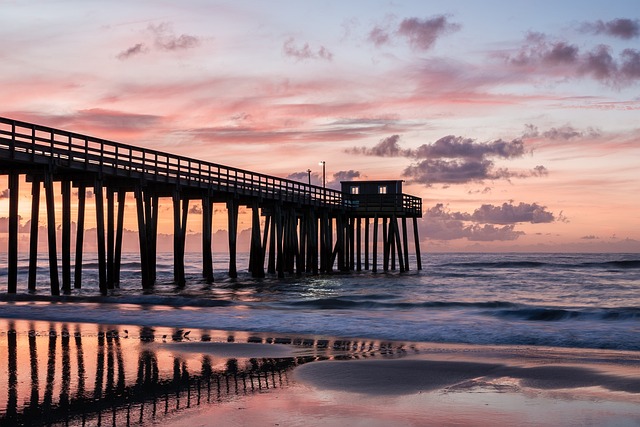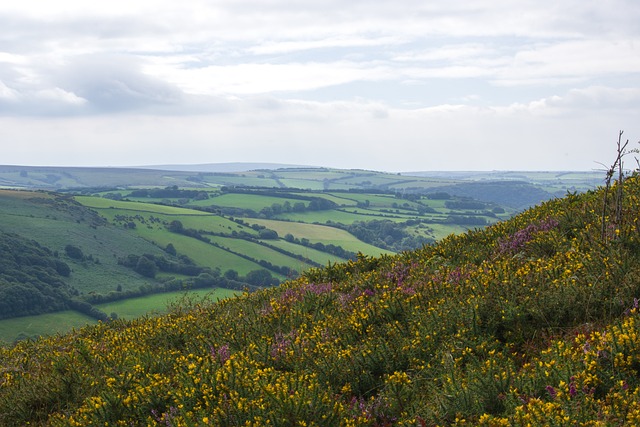The Blackwells Mills Canal House in Somerset County, New Jersey, is a historic site that played a crucial role in the region's 19th-century trade and commerce as part of the Delaware and Raritan Canal system. This canal house, over 150 years old, offers visitors a glimpse into the area's evolution of transportation, particularly its impact on local agriculture and economic growth. As a key link in New Jersey's historical trade routes, it facilitated the movement of goods from Somerset County to Delaware River ports. Today, it stands as a living museum, preserving Somerset County's heritage and educating the public about the significance of historical canals in America's industrial and economic development. The house, a testament to 19th-century architecture and engineering, features a symmetrical design with practical considerations for its canal operations, showcasing how form and function were harmoniously integrated during that era. It is a cultural asset that provides a tangible connection to the past, reflecting Somerset County's role in the nation's historical network of trade and transportation. The preservation of this site not only honors local history but also serves as an educational resource for understanding New Jersey's economic significance during the canal era. It is a multifunctional space that hosts cultural events and offers environmental education, emphasizing the enduring importance of Somerset County's waterways in both historical and contemporary contexts. The Blackwells Mills Canal House remains a vital part of the community, fostering an appreciation for Somerset County's rich heritage and its commitment to preserving its natural beauty and cultural legacy.
Nestled within Somerset County, New Jersey, stands a testament to historical engineering and trade—the Blackwells Mills Canal House in Franklin Township. This article delves into the rich tapestry of its history, architectural finesse, and pivotal role in the economic lifeblood of the region. As we navigate through its past, we uncover how this canal house not only shaped local commerce but also why it remains a cornerstone of preservation efforts today. Join us as we explore the enduring legacy of the Blackwells Mills Canal House and its significance within the historical landscape of New Jersey.
- Exploring the Historical Significance of the Blackwells Mills Canal House in Somerset County, New Jersey
- The Architectural Marvel: A Closer Look at the Blackwells Mills Canal House's Design and Construction
- Canal Life and Commerce: The Role of the Blackwells Mills Canal House in Franklin Township's Economic Past
- Preservation Efforts and Modern-Day Relevance: Safeguarding the Legacy of the Blackwells Mills Canal House
Exploring the Historical Significance of the Blackwells Mills Canal House in Somerset County, New Jersey

The Blackwells Mills Canal House, nestled in Franklin Township within Somerset County, New Jersey, stands as a testament to the region’s rich transportation history. This storied structure, once integral to the Delaware and Raritan Canal, played a pivotal role in the 19th-century trade and commerce of the area. Its walls, steeped in over a century and a half of history, have witnessed the ebb and flow of river traffic, reflecting the ingenuity and ambition of its era’s engineers and builders. The canal itself, which runs parallel to the mill, was a vital artery connecting the agricultural expanse of central New Jersey with the bustling ports of the Delaware River, facilitating the movement of goods from across Somerset County and beyond. Today, this historic site offers visitors a glimpse into a bygone era, showcasing how transportation systems transformed the landscape and economy of New Jersey. The Blackwells Mills Canal House stands as a symbol of the region’s history, inviting exploration and reflection on the evolution of the area’s infrastructure and its significance in the broader context of American industrial and economic development. Its preservation is not only crucial for maintaining a connection to Somerset County’s past but also for educating future generations about the pivotal role such waterways played in shaping the nation’s transportation network.
The Architectural Marvel: A Closer Look at the Blackwells Mills Canal House's Design and Construction

The Blackwells Mills Canal House, nestled in Franklin Township within Somerset County, New Jersey, stands as a testament to the region’s rich architectural heritage and engineering prowess. This historic structure, constructed along the old Delaware and Raritan Canal, exemplifies the fusion of practical canal-side design with the aesthetic sensibilities of its era. Its facade, characterized by a symmetrical arrangement of windows and a robust yet elegant use of materials like brick and timber, reflects the craftsmanship typical of 19th-century American architecture. The interior boasts a layout thoughtfully planned to accommodate the needs of canal operations while providing comfortable living quarters for its occupants.
The design and construction of the Blackwells Mills Canal House were informed by both functional requirements and the prevailing architectural styles of early Somerset County, New Jersey. Canals, being vital trade routes during the 1800s, necessitated buildings that could withstand the elements and the heavy traffic of boats laden with goods. The Blackwells Mills property, in particular, showcases a harmonious blend of form and function, with its arched doorways and windows designed to accommodate draft animals and cargo movement. This historic site not only offers a glimpse into the past but also contributes to the local cultural landscape, inviting visitors to appreciate the ingenuity behind its enduring structure.
Canal Life and Commerce: The Role of the Blackwells Mills Canal House in Franklin Township's Economic Past

The Blackwells Mills Canal House, a historical landmark situated in Franklin Township, Somerset County, New Jersey, stands as a testament to the rich canal life that once thrived along its waters. During the 19th century, this region was pivotal in the state’s economic development, with the Delaware and Raritan Canal system playing a critical role in commerce and transportation. The Blackwells Mills site, in particular, was a hub of activity, where goods were transferred between water and overland routes, facilitating the flow of agricultural products like grain from the countryside to markets in Trenton and beyond. This strategic positioning within Somerset County’s network of canals allowed for a diverse array of commodities to be transported, including lumber, coal, and even passengers seeking travel between urban centers and rural areas. The canal system’s influence extended well into the 20th century, shaping the economic landscape of this area until the advent of modern transportation methods like railroads and highways made waterways less critical for commerce. Today, the Blackwells Mills Canal House is preserved as a reminder of the economic vitality that once coursed through its surroundings, offering visitors a glimpse into the past and the role it played in the history of Somerset County, New Jersey.
Preservation Efforts and Modern-Day Relevance: Safeguarding the Legacy of the Blackwells Mills Canal House

The Blackwells Mills Canal House, a historic gem nestled within Franklin Township in Somerset County, New Jersey, stands as a testament to the region’s rich heritage and its pivotal role in America’s transportation network. Preservation efforts for this canal-era structure have been ongoing, reflecting a commitment to maintaining the architectural integrity and historical significance of this site. These initiatives are crucial in safeguarding the legacy of the canal era, which once facilitated vital commerce and communication across the state. Local historians and preservationists work tirelessly to ensure that the Blackwells Mills Canal House remains a tangible link to New Jersey’s past, offering educational experiences for visitors and residents alike.
In modern times, the Blackwells Mills Canal House continues to hold relevance beyond its historical value. It serves as an outdoor museum, a venue for cultural events, and a platform for environmental education, highlighting the importance of Somerset County’s waterways in both history and contemporary life. The house’s preservation is not just about retaining a physical structure but also about promoting stewardship of the surrounding landscape, including the Raritan Bayshore Heritage Area. Through these efforts, the Blackwells Mills Canal House remains an integral part of the community, offering a unique perspective on New Jersey’s history and its ongoing commitment to preserving its cultural heritage.
